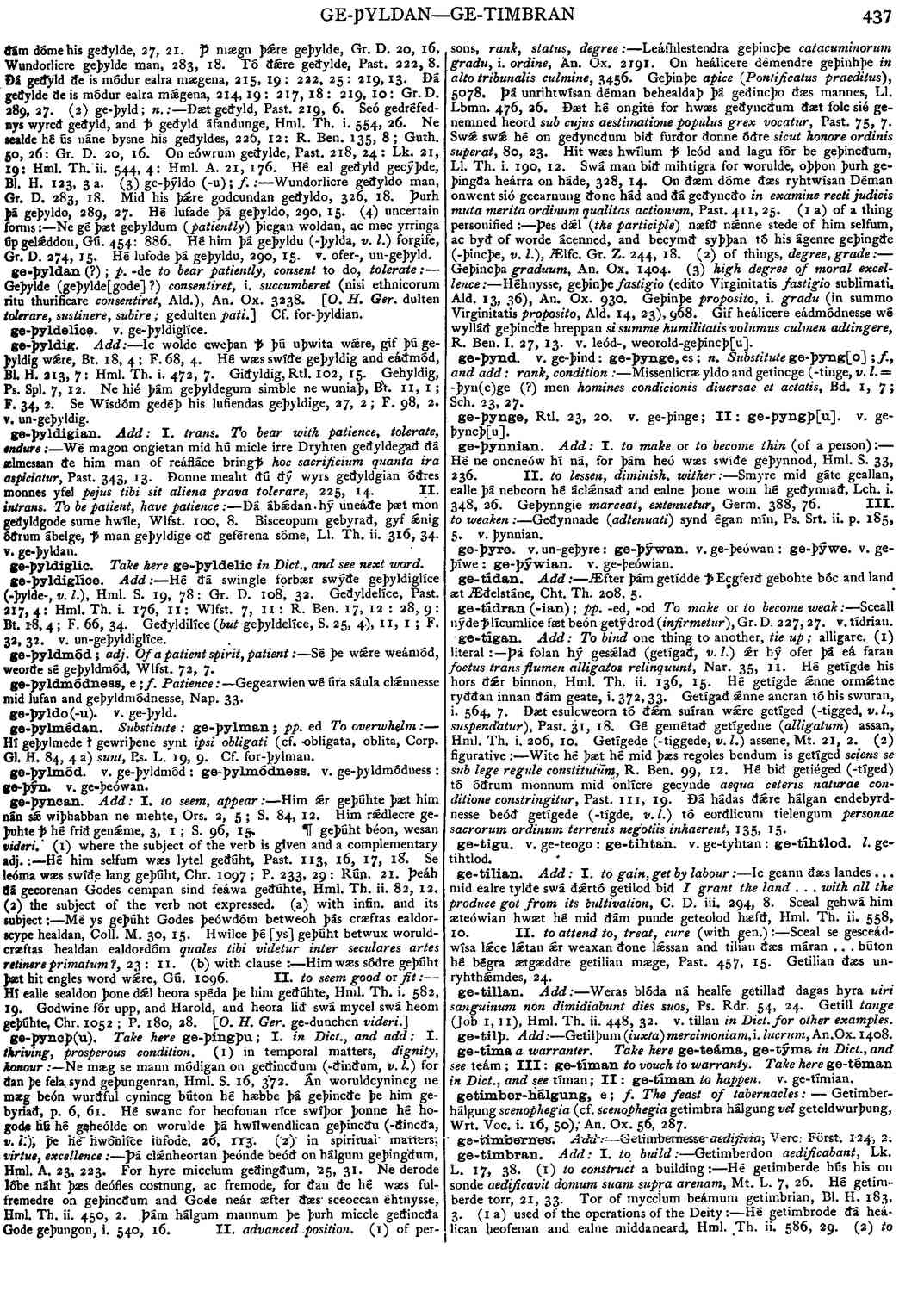ge-þyncan
-
Him ǽr geþúhte þæt him nán sǽ wiþhabban ne mehte,
- Ors. 2, 5; S. 84, 12.
-
Him rǽdlecre geþuhte ꝥ hé frið genǽme,
- 3, 1; S. 96, 15.
- ¶ geþúht béon, wesan videri.
-
Hé him selfum wæs lytel geðúht,
- Past. 113, 16, 17, 18.
-
Se leóma wæs swíðe lang geþúht,
- Chr. 1097; P. 233, 29: Rún. 21.
-
Þeáh ðá gecorenan Godes cempan sind feáwa geðúhte,
- Hml. Th. ii. 82, 12.
-
Mé ys geþúht Godes þeówdóm betweoh þás cræftas ealdorscype healdan,
- Coll. M. 30, 15.
-
Hwilce þé [ys] geþúht betwux woruldcræftas healdan ealdordóm
quales tibi videtur inter seculares artes retinere primatum?,
23: 11.
-
Him wæs sóðre geþúht þæt hit engles word wǽre,
- Gú. 1096.
-
Hí ealle sealdon þone dǽl heora spéda þe him geðúhte,
- Hml. Th. i. 582, 19.
-
Godwine fór upp, and Harold, and heora lið swá mycel swá heom geþúhte,
- Chr. 1052; P. 180, 28.
Bosworth, Joseph. “ge-þyncan.” In An Anglo-Saxon Dictionary Online, edited by Thomas Northcote Toller, Christ Sean, and Ondřej Tichy. Prague: Faculty of Arts, Charles University, 2014. https://bosworthtoller.com/50206.
Checked: 0